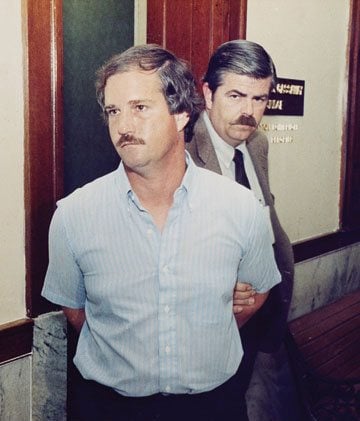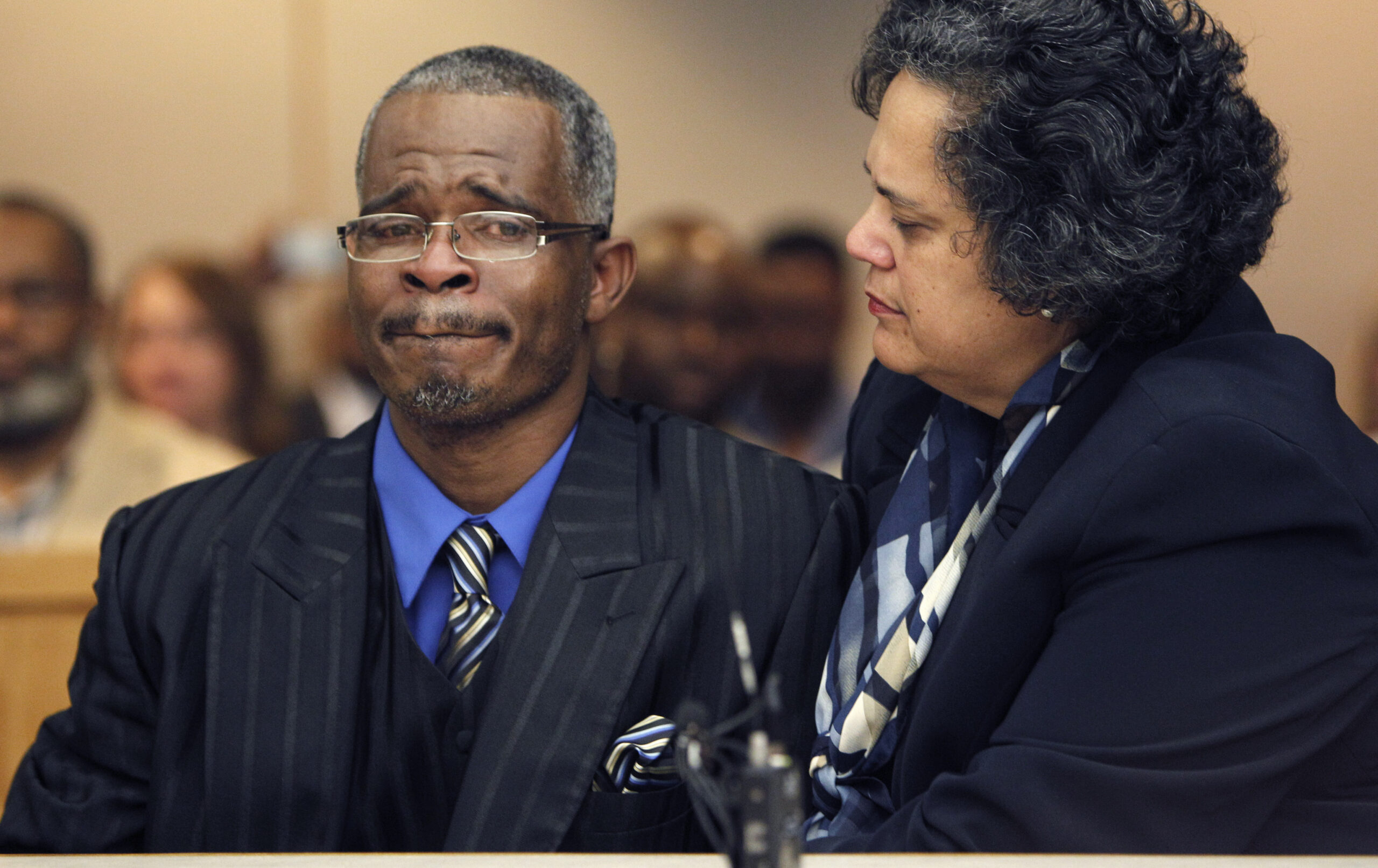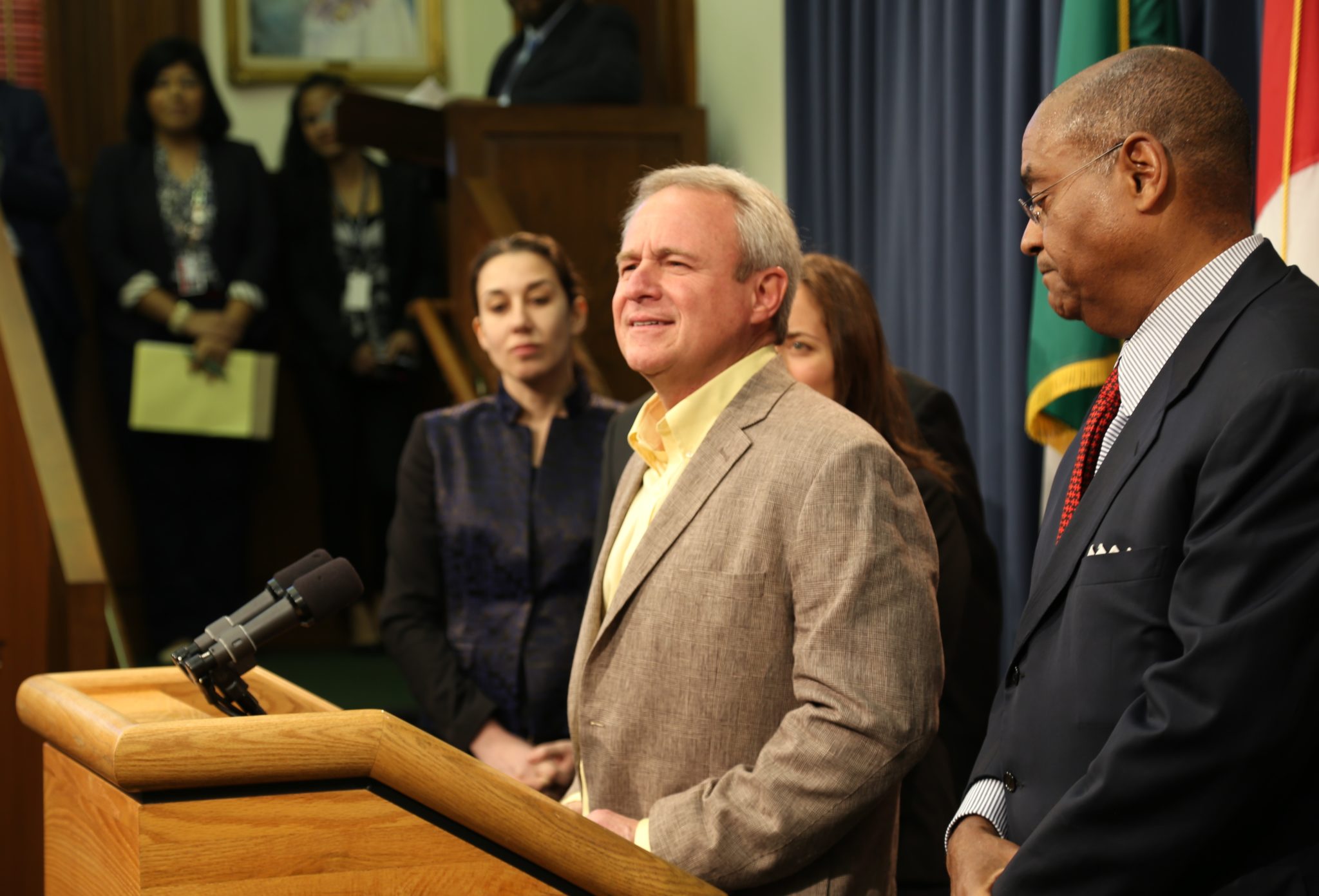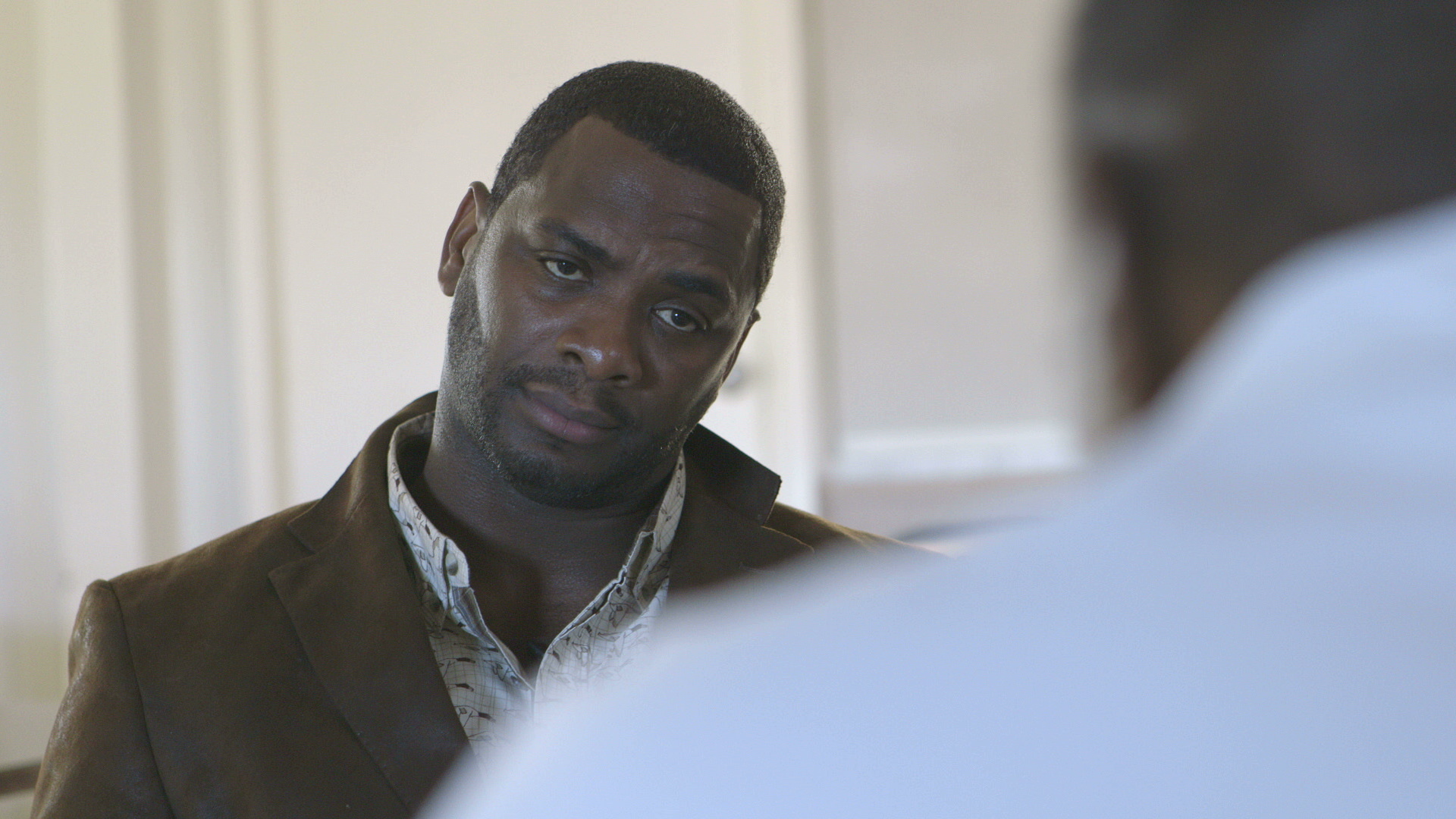
Re-Trial of Ed Graf’s Flawed Arson Case Begins in Waco

Above: Ed Graf in 1988
Ed Graf is once again on trial for a crime that many experts say he likely didn’t commit.
Jury selection for Graf’s re-trial on capital murder charges began this morning in a Waco courtroom. Graf was convicted in 1988 of starting a fire in a shed that killed his 8- and 9-year-old stepsons. He served 25 years of a life sentence before his conviction was overturned last year. Graf has maintained his innocence, and much of the physical evidence in the case supports his claims. Three nationally known fire scientists and the State Fire Marshal’s Office’s expert panel have examined the forensic evidence against Graf and concluded there’s no proof that Graf committed arson. And yet he’s once again on trial for his life.
In 2009, the Observer was the first media outlet to examine the flaws in Graf’s conviction, part of a series on faulty arson cases. Since Graf was convicted a quarter century ago, the field of fire investigation has advanced considerably. Many of the indicators investigators once used to distinguish an intentionally set fire from an accidental one—and to convict hundreds of people of arson, including Graf—have been disproven. Similarly, nearly all the forensic evidence that convicted Graf of arson in 1988, such as burn patterns in the wooden shed, has now been debunked.
At a January 2013 hearing, fire scientist Doug Carpenter eviscerated the case against Graf, testifying that, “There is no evidence to be able to formulate a valid hypothesis that this is an incendiary fire.”
In March 2013, the Court of Criminal Appeals, the state’s highest criminal court, agreed and overturned Graf’s conviction. At that point, it was up to McLennan County prosecutors to decide whether to free Graf or attempt to re-try him.
The re-trial will test whether prosecutors can win a conviction with circumstantial evidence alone. It will also test just how far Texas has come in dealing with arson cases.
In June 2013, the State Fire Marshal Office’s Science Advisory Workgroup—a panel of six experts examining old arson cases in the wake of the Cameron Todd Willingham fiasco—also concluded there was no evidence of arson. The State Fire Marshal’s Office sent McLennan County DA Abel Reyna a letter notifying him that the office had changed its classification of the Graf case from “arson” to “undetermined.” If there was no arson, then no crime was committed, and Graf is, by definition, innocent.
Yet Reyna and the DA’s office plunged ahead with a new trial of Graf, who, having spent 25 years in state prison, remains incarcerated in the county jail.
Prosecutors will have little physical evidence on their side. They will have to rely on the circumstantial evidence in the case, including the life insurance policies Graf took out on the kids that he sought to collect after the fire.
In that sense, the re-trial will test whether prosecutors can win a conviction with circumstantial evidence alone. It will also test just how far Texas has come in dealing with arson cases: Graf is the first disputed case to be re-tried since the Willingham controversy and since the state began its review of older arson convictions.
Given the stakes, the proceedings aren’t off to an encouraging start. The re-trial was delayed twice because prosecutors’ original files have gone missing. At a bizarre hearing last week, former DA Vic Feazell, who prosecuted Graf in 1988, traded accusations with his ex-wife about what happened to the files. Though attorneys on both sides have located copies of the files, the originals are still missing, and it’s unclear if any relevant evidence has disappeared as well.
Meanwhile, the re-trial has garnered national attention. National Public Radio will air a story on the Graf re-trial on “All Things Considered” this afternoon.
Prosecutors may begin presenting their circumstantial case late today or tomorrow morning. I’ll be at the trial this week and will post updates in this space.


